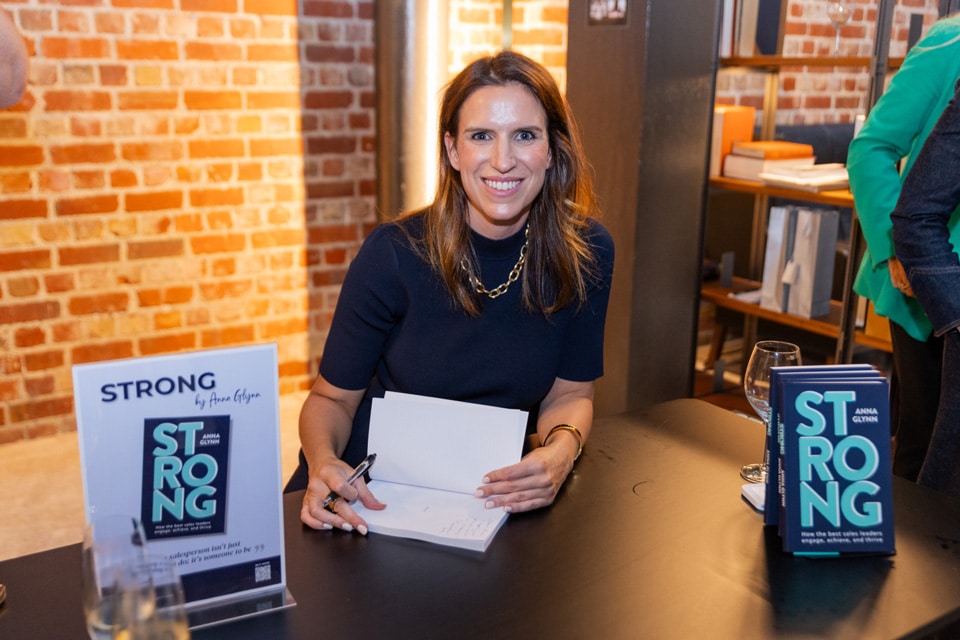We’ve all heard the age-old adage ‘play to your strengths’. Yet, as humans, we often find ourselves fixating on weaknesses rather than embracing our strengths. It’s almost as if we’re wired to hone in on what’s wrong or lacking, rather than recognising and capitalising on what’s right and strong. It’s a peculiar trait of human nature, one that has profound implications, especially in the high-stakes world of sales, where success hinges on leveraging strengths.
Dating back to the wisdom of the Greek philosopher Aristotle, the concept of playing to strengths has endured through the ages. Aristotle posited that to reach our full potential, we must align our lives with our inherent strengths. And modern research has only served to underscore the wisdom of this ancient insight, particularly over the last two decades.
Our strengths represent the brain’s optimal performance pathways. When we operate from a place of strength, not only do we excel in our endeavours, but we also experience a ripple effect of positive outcomes in other areas of our lives. Sales professionals, in particular, stand to gain tremendously from leveraging their strengths. Studies have consistently shown that those who are aware of and capitalise on their strengths are not only more engaged but also perform at a higher level. Armed with these internal resources, they adeptly navigate challenges and capitalise on opportunities, setting themselves up for success in the competitive landscape of sales.
But the benefits don’t stop there. Strengths utilisation has been correlated with a myriad of other positive outcomes, including increased energy, confidence, goal achievement, creativity, happiness, job satisfaction and reduced stress, giving sales professionals a competitive edge. In essence, strengths are a superpower, capable of transforming not only individual performance but also organisational outcomes.
In this article, we explore how today’s most effective sales leaders are playing to strengths and exceling in the sales game. Grounded in research, these practices serve as a roadmap for navigating the complexities of leadership and driving long-term sustainable performance within sales teams.
- Developing team strengths
Knowing the unique strengths of your sales team is essential. While they may possess a foundational aptitude for sales and adhere to established processes, each individual brings a unique set of strengths to the table. Some may excel at storytelling, while others thrive in delving into data analysis or forging meaningful connections. By understanding and leveraging these diverse strengths, you empower your team members to excel in their respective roles and contribute to collective success.However, untapped or unrecognised strengths pose a risk to team effectiveness. When team members’ strengths remain dormant, opportunities for leveraging their full potential are missed. Particular projects may not align with individuals’ strengths, leading to suboptimal outcomes and diminished empowerment. By fostering awareness and encouraging team members to articulate and utilise their strengths, you pave the way for continuous growth and improvement.
- Leveraging leadership strengths
As a sales leader, understanding your strengths is crucial for effective leadership. By recognising your strengths, you gain clarity on your areas of proficiency and where to focus your future development efforts. This strategic alignment not only mitigates your shortcomings but also enhances team performance and cohesion.Building a culture that values and leverages strengths is foundational to team success. Managers can lead by example by openly discussing their strengths and encouraging others to do the same. Teams that play to their strengths are more connected, collaborative, and resilient, positioning themselves for sustained success in today’s dynamic sales environment.
- Building a strengths-based culture
Leadership commitment is essential for building a strengths-based culture. Prioritizing strengths identification, development, and utilisation fosters engagement, motivation, and collaboration across the organisation.Leaders need to embed strengths-based practices into key organizational processes, such as hiring, performance management, and training. Recognition and celebration of individual and team strengths further reinforce a culture of diversity, appreciation, and empowerment. By creating an environment where strengths are valued and nurtured, organisations can unlock the full potential of their teams and achieve sustainable sales growth and success.
Those that play to strengths have an advantage, enabling them to cope well with challenges, achieve their goals, and more. As a result, these teams stand out as they typically outperform their competitors.
Embracing a strengths-based approach using the principles outlined above empowers individuals, leaders, teams and the organisational overall to thrive in today’s competitive landscape. So it’s not just a mantra, playing to strengths is a smart strategy for sales success.
Written by Anna Glynn.
Have you read?
Richest Billionaire Investors. Billionaire Winners. Billionaire Losers. Best Business Schools. Best Hotel Schools.
Add CEOWORLD magazine to your Google News feed.
Follow CEOWORLD magazine headlines on: Google News, LinkedIn, Twitter, and Facebook.
This report/news/ranking/statistics has been prepared only for general guidance on matters of interest and does not constitute professional advice. You should not act upon the information contained in this publication without obtaining specific professional advice. No representation or warranty (express or implied) is given as to the accuracy or completeness of the information contained in this publication, and, to the extent permitted by law, CEOWORLD magazine does not accept or assume any liability, responsibility or duty of care for any consequences of you or anyone
else acting, or refraining to act, in reliance on the information contained in this publication or for any decision based on it.
Copyright 2024 The CEOWORLD magazine. All rights reserved. This material (and any extract from it) must not be copied, redistributed or placed on any website, without CEOWORLD magazine’ prior written consent. For media queries, please contact: info@ceoworld.biz
SUBSCRIBE NEWSLETTER








































































